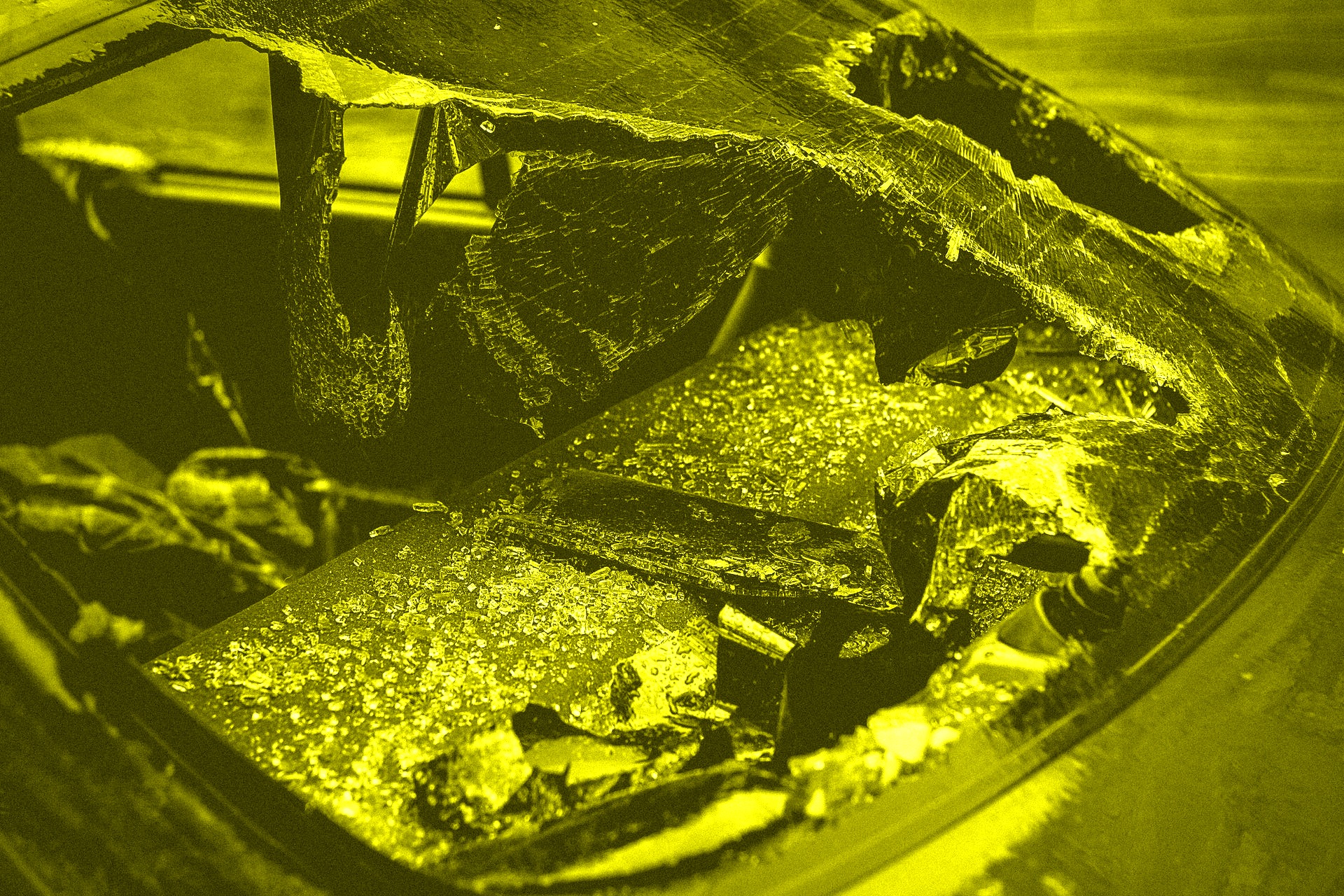Related Articles

Maryland’s Horrendous Law Capping Damages
In a recent blog post, I wrote about the ridiculous law in Virginia that limits the amount of money medical malpractice victims may receive for their injuries. (This law caps “damages.”) But I’ll tell you a secret about the damages caps in Virginia: in some ways, they are much fairer than they are in Maryland.
To be clear, they are not fairer in medical malpractice cases. However, in other kinds of personal injury cases–car crash cases, premises liability cases, truck collision cases, elder abuse cases, and so on–the damages caps in Virginia are significantly fairer. In fact, in some ways, the damages caps in Maryland are some of the least fair in the nation.
Could this really be true?
Could it, considering the Maryland legislature is overwhelmingly Democratic? (There are two Democrats for every one Republican in both the Senate and the House of Delegates.)
It is true.
Individuals who have suffered catastrophic injuries might find it unfortunate that they were injured if they were injured because of someone else’s negligence; they may find it especially unfortunate if they were injured in Maryland.
I’ll tell you why.
Maryland caps the amount injured plaintiffs can recover for non-economic damages. Non-economic damages cover losses like the loss of the enjoyment of life, physical pain and suffering, and mental anguish.
Maryland law caps recovery for non-economic damages to only $845,000. (The cap increases by $15,000 every year.)
Imagine: you’re driving a hatchback, you’re stopped in traffic, and suddenly you get hit from behind–obliterated–by a big SUV. You get medical treatment, of course. But after all the treatment you receive, a doctor tells you that you’ll have severe pain for the rest of your life and she recommends you use a wheelchair.
Activities you used to love, like running every morning and playing a round of golf with your friends on weekends, are now off limits to you. You feel like you’re a burden on your family. You’ll likely live another 40 years.
Now, consider someone gives you a check for $845,000 in exchange for the severe pain, the mental anguish, and the loss of your enjoyment of life. That check would, spread over 40 years, equal about $20,000 a year.
Who in their right mind would consider that amount to be fair?
Make no mistake about it: none of Maryland’s neighboring states limit non-economic damages in all personal injury cases–not DC, not Delaware, not Virginia, not New Jersey, not New York, not Pennsylvania. In fact, only 10 other states in the nation have such a cap on non-economic damages: Alaska, Colorado, Hawaii, Idaho, Kansas, Mississippi, Ohio, Oklahoma, Oregon, and Tennessee.
Maryland is an outlier.
The Democratic legislature ought to end the caps on non-economic damages, bringing Maryland in line with the vast majority of states and all of its neighbors.

What Are General and Special Damages in Car Accident Claims?
From the perspective of accident victims, the prime concern in nearly all car accident cases deals with damages, the financial compensation they will receive for their bodily injuries. This is what clients want to address when they first consult with an attorney. This is why clients seek advice from a lawyer in the first place.
Let’s start to examine damages for bodily injury.
Let’s start by first recognizing the two broad categories of damages: (1) special damages and (2) general damages.
What are they?
Special Damages
Special damages are “out of pocket” damages, as a general rule. They are damages that can be measured and calculated, usually represented by costs incurred already or costs that can be reasonably expected in the future.
After identifying the recoverable damages for a particular case, the process of obtaining evidence to support each starts.
General Damages
General damages are such damages that cannot be pegged with any monetary precision. Though they are an important component of all claims of bodily injury, they may be the toughest to prove.
When considering general damages, we may typically think of the physical pain and suffering experienced by accident victims; however, general damages may also include emotional suffering and loss of enjoyment of life.
It is difficult in many cases to objectively prove an accident victim’s pain and suffering.

Three Things to Avoid Saying to an Adjuster After an Accident
It is generally smart to speak with a good personal injury attorney before you ever talk with an insurance adjuster. A good attorney can guide you through the claims process and protect your interests. Inevitably, though, some people will go it alone. Lest they be bent over the barrel by insurance adjusters who aim to settle claims quickly and cheaply, it’s important for them to know what not to say to adjusters.
Who Are Insurance Adjusters?
Insurance adjusters are employees of insurance companies who work to investigate an insurance claim, determine how much their company should pay, and then settle the claim. It is the job of the insurance adjuster to weaken your claim, so their company can reduce (perhaps to $0) the amount it pays you. While adjusters may seem considerate and kind, they want you to say the wrong thing, something that will decrease your financial recovery.
What You Should Be Wary of Saying to an Adjuster
In light of the insurance adjuster’s mission to reduce the amount their company must pay you, let’s look at three of the worst things you might say to the adjuster.
A demand for a specific dollar amount
In demanding a specific dollar amount, too many accident victims markdown their case’s value. You may think you know exactly how much you have lost, but there is a substantial chance you’re missing something. Did you know, for example, that the law allows money to cover future medical costs. Further, would you know how to determine your future medical costs? What about pain and suffering? What about lost wages and benefits?
Something negative about your actions
Adjusters are infamous for distorting the slightest bad thing, until it’s something that substantially weakens your case. You shouldn’t give an insurance adjuster any tools to deny your claim. Accordingly, you shouldn’t say something negative about your behavior.
Anything untruthful
Some people will be tempted to completely lie to the adjuster, while others will be tempted to distort the truth. The latter group might, for example, claim they remember a traffic light being green when they’re not 100% sure it was. However, when talking with an adjuster, you should absolutely avoid both distortions of the truth and outright lies. Both will significantly harm your case.
Get Legal Help
Big insurance companies did not become billion-dollar enterprises by being dumb or weak. They will act to protect and further their own interests. As an accident victim, you deserve a level playing field. Hiring a personal injury firm can help you get it.
At Fintus Injury Firm, we’re dedicated to supporting you. We offer a free legal consultation. Let’s talk today.

How Long Do You Have to See a Doctor After a Car Accident?
Significant injuries after a car accident require medical attention and care. But sometimes injuries that result from accidents are not obvious immediately. For example, sometimes a person walks away from an accident only to feel great pain later. A frequent question that car accident victims have is, how long do I have to see a doctor after an accident?
While you do not have to get medical attention at the scene, it’s important to get medical attention very soon after the accident. This is true even if you don’t think you’ve suffered a serious injury.
Why?
First and most important, seeing a doctor as soon as possible is valuable to ensure that you recover from your injuries. Second, seeing a doctor as soon as possible is important to ensure that you receive, from insurance companies, maximum compensation for your injuries.
With regard to your case for compensation, an important factor that affects your chances of receiving adequate compensation for your injuries is when you seek medical care.
The chances that you will receive adequate compensation for your injuries lower if you do not seek medical care within a “reasonable” amount of time.
Generally, to determine whether you have sought medical care within a reasonable amount of time, most insurance companies will ask whether you’ve sought medical care within 72 hours following the accident. Therefore, don’t be reluctant about seeing a doctor very quickly after the accident. Don’t be reluctant to go to the emergency room, or to your primary care physician, or to an urgent care facility.
If you’ve been in a car accident in Maryland, I recognize that you may have questions about your legal options. Well, if you have not yet started a lawsuit and are contemplating bringing one, I encourage you to contact me today. I can answer your legal questions and would love to talk with you. You can reach me at 410-513-9978 or by email at stefan.akorli@fintusinjuryfirm.com.

What to Do Immediately After a Car Accident
The moments following a car accident can be gut-wrenching, and it can be challenging to know everything you should do immediately after the accident. But, taking the proper actions in the moments immediately following an accident is often what separates those who receive a fair settlement offer from those who don’t. So, if you’ve just got into a car accident, what should you do?
- Make sure you, your passengers, and your car are in a safe location.
- Call 911 for medical and police assistance.
- If you are not severely injured, talk to the other driver and any witnesses. Take a picture of the driver’s license and insurance card. Alternatively, write down the information from the other driver’s license and insurance card. Also, get the driver’s phone number.
Talk to the other driver about what they were doing before the accident, about what may have caused the accident. The driver may stonewall you, or the driver may admit, for example, “I just didn’t see the red light.”
Talk to witnesses, and make sure to get their names and phone numbers. Take their pictures, assuming you have their consent to do so.
- Take plenty of pictures. Take pictures of everything relating to the accident. Take pictures from multiple angles.
Things you should take pictures of include, but are certainly not limited to,the following
- your car
- the other driver’s car (including the car’s interior)
- the other driver
- witnesses
- skid marks
- any glass, auto parts, or debris scattered throughout the scene
- nearby road signs and traffic lights
- surrounding businesses.
If you were unable to document the scene, ask a friend or family member to visit the scene immediately to take pictures.
- Make an accident report with the police officer. Make a clear statement of how the accident occurred. Be sure to get the officer’s first and last name, badge number, the organization he or she works for (for example, the Maryland state police), and the police report number.
- Get medical care for your injuries as they arise. Whether it’s at the scene, hours after the accident, or the next day, you need to promptly get medical treatment.
I recognize that you may have questions about legal options if you or a loved one has suffered an injury in an auto accident in Maryland. Well, if you have not yet started a lawsuit and are contemplating bringing one, I encourage you to contact me today. I can answer your legal questions and would love to talk with you. You can reach me at 410-513-9978 or by email at stefan.akorli@fintusinjuryfirm.com.

Knock-On Effects of a Lung Injury in a Car Accident
The lungs are fragile, and when you suffer a lung injury–whether it be a punctured lung, a collapsed lung, a chemical burn injury, or a smoke inhalation injury–the physical damage to your lungs may be severe. But it would be an error to think that the physical damage to the lungs is the only injury you need to worry about. This would be an error because lung injuries often have serious second-order and third-order effects.
Second-order effects include, as a result of not being able to breathe well, lower physical activity level (e.g., difficulty with using the telephone, shopping, preparing meals, doing housework, laundering clothes, transportation, taking medications, and managing money). And, according to researchers, lower amounts of physical activity can lead to symptoms of depression. Researchers have noted that depressive symptoms are relatively persistent in victims of acute lung injury.
Further, noting a third-order effect, the researchers noted that depressive symptoms themselves pose a risk for subsequent impairment in physical function.
It is often, and certainly in the case of lung injury victims, a mistake to assume that the physical damage initially incurred from an accident is the only injury that will result. Injuries, like acute lung injuries, often have knock-on effects, and a acute lung injury can have lasting consequences, holding a victim back for years.
To overcome a severe lung injury, a victim needs the financial resources to get proper medical care–resources which might be gained by way of suing the party responsible for the injury.
If you have suffered a lung injury in auto accident in Maryland, I recognize that you may have questions about your legal options. Well, if you have not yet started a lawsuit and are contemplating bringing one, I encourage you to contact me today. I can answer your legal questions and would love to talk with you. You can reach me at 410-513-9978 or by email at stefan.akorli@fintusinjuryfirm.com.

What Damages Are In Maryland?
In personal injury cases that start when a victim is injured by a wrongdoer who does not intend to cause injury, the victim has to establish certain things in order to get a financial recovery for his or her injuries. Let’s imagine you’re the victim here. One thing that you must establish is that the wrongdoer acted[1] in a negligent manner. Another thing you must establish is that the wrongdoer’s negligence caused your injuries. Finally, you must prove that you sustained “damages.” In past posts, we looked at how to show negligence and how to show causation. Here, let’s focus in on damages.
Damages in personal injury cases can range from a couple hundred dollars for an emergency room visit to many millions of dollars for catastrophic injuries and permanent disabilities. Calculating damages can be a very complicated process, so you should seek the assistance of an attorney.
You must show that you suffered actual losses due to the accident and your injuries. Common losses include the following:
- Past medical expenses
- Future medical expenses
- Property damage
- Loss of income or benefits
- Loss of enjoyment of life
- Pain and suffering.
If you have suffered injury and believe another party has acted negligently, you should not delay in consulting with an experienced personal injury attorney in Maryland. Damages can be complicated and a qualified attorney will know how to sufficiently gather and present evidence of negligence in court so that you can receive the compensation you deserve.
I realize you may have questions or concerns about
your matter, which occurred here in Maryland. If you have not yet started a
lawsuit and are contemplating bringing one, but still have questions, call me. I
can answer your legal questions and would love to talk with you. You can reach
me at 410-513-9978 or by email at stefan.akorli@fintusinjuryfirm.com.
[1] Sometimes the negligent behavior is a failure to act, an omission, like a doctor failing to diagnose a condition that he or she should have diagnosed.

What Causation Is in Maryland
In personal injury cases that start when someone is injured by a wrongdoer who does not intend to cause injury, you have to establish certain things in order to get a financial recovery for your injuries. One thing that you must establish is that the wrongdoer acted in a negligent manner–and we looked at what negligence is in a past blog post. However, establishing negligence is not enough, to surprise of many people. In addition to establishing the wrongdoer was negligent, you must establish “causation” and “damages.” Here, we’ll look at causation in Maryland.
A big issue in all personal injury litigation, including the malpractice area, is the issue of causation. The heart of many personal injury cases is not what the injury is, not the amount of damage or harm, but whether the wrongdoer caused the injury or damage.
In Maryland, you must prove that the individual’s “breach of duty” was a “proximate cause” of your injury. At a minimum, as part of the proximate cause issue, you must show “causation in fact.” This means, you must show, at a minimum, that the wrongdoer’s conduct actually produced your injury.
For example, in a medical malpractice case, this might be established by asking a medical expert, among other questions, whether–under the facts of the case–the expert has an opinion if the damages or harm you suffered were caused by the acts of the wrongdoer.
The other subset of proximate cause in Maryland, sitting beside causation in fact, is “legal cause.” When it comes to legal cause, the court asks whether the wrongdoer, in light of considerations of fairness and “social policy,” should be held liable for your injury, even when you have established that the wrongdoer’s conduct produced your injury.
If you have suffered injury and believe your injury is another party’s fault, you should not delay talking with a good personal injury attorney. Negligence and related personal injury legal concepts can be complicated, and a qualified attorney will know how to sufficiently gather and present evidence of negligence so you can receive the compensation you deserve.
I realize you likely have questions or concerns about your matter that happened here in Maryland. Well, if you have not yet started a lawsuit and are contemplating bringing one, but still have questions. What I encourage you to do is pick up the phone and call me. I can answer your legal questions. This is something I do every single day, and I would love to chat with you. You can reach me at 410-513-9978 or by email at stefan.akorli@fintusinjuryfirm.com.

